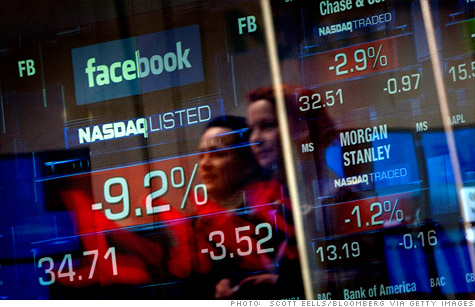This article says that Facebook has failed – and it is time to search for alternatives.
https://medium.com/a-programmers-tale/f7b8c66109ea
Search for alternatives all you want – that’s always a good thing. But Facebook has failed? That part I don’t agree with.
Let’s see what is the argument about failure of Facebook:
1. My wall looks like a junkyard – most of what is on my wall is irrelevant to me
2. Loudmouths now have a gigantic microphone
3. An industry is busy in creating emotionally compelling foolish content and gaming Facebook in showing irrelevant content to us
4. More I use Facebook, more friends, pages, events etc. I accumulate, more irrelevant what I see on Facebook becomes
5. The above weakness is not an accidental flaw of Facebook, but features
Conclusion: Facebook is doomed.
On a little scrutiny, none of these really hold up.
Argument 1: My wall looks like a junkyard
My take: Your Facebook consists of you social network. If your social network is of a low quaility – you wouldn’t see high quality content. For instance, in my network I have entrepreneurs, atheists, law students – I see content relevant to these groups as they regularly share such content. I don’t see updates that astronauts may like. If I want astronaut relevant updates on my Facebook wall, I would have to befriend a few astronauts and add them on Facebook. If most of my friends on Facebook are emotional fools, like mentioned in point 3, then I will get those emotionally compelling foolish updates. In fact, Facebook offers great flexibility to decide whose updates you want to see – you can reduce or increase updates from certain people. If you are lazy and not using such features, too bad for you. If your friends and social network is of a low quality – too bad, but it’s not Facebook’s fault.
Argument 2: Loudmouths now have a gigantic handphone
My take: Yes, we could also call those loudmouths activists, marketers, people with an agenda. Facebook is godsent for them. However, Facebook does not allow each and every message to spread – people have to support the message being spread and only then the activist or the marketer will succeed. Facebook gives us a way to share the messages we care about. This is a great social end. If I need advice, help or support, now I don’t restrict myself to asking my close friends in person only – I ask my entire network on Facebook. And my god, does it work! Also, Facebook, apart from twitter is probably the primary debating forum of our times – where people engage publicly with each other and debate issues that are important. That debate may be irrelevant to a self-centered person, but it is democracy in motion – yes, on Facebook.
Argument 3: there is an industry gaming Facebook to show us foolish irrelevant content
My take: Facebook advertising has picked up these days. And yes, you do see advertisements. But when did advertisements stop people from watching TV? Or from going to movie theatre (in Indian multiplexes we see a lot of ads these days) or even reading blogposts or searching on Google? We pay for what we use on Facebook by tolerating or even reading those ads. Also, the Facebook ads are more relevant than any other ads – because they are more targeted and discriminating. What our friends (people in the same social group) like, we may like them too! Also, it is liberating for the small businesses in terms of marketing – Facebook advertisement levels the field for startups and small businesses who cannot buy TV and newspaper ads. My startup iPleaders is a big beneficiary of this advantage. We have at least 400 satisfied students who found us through Facebook ads. For them and as well as for us – this feature added real value to our lives. The industry you are talking about is perhaps one of the biggest strengths of Facebook.
Also, who decided what is foolish emotional content? It is a matter of your test, isn’t it? There are people who are crazy for Justin Beiber – and you may not listen to that sort of music at all. That hardly means there wouldn’t be radio stations that play Justin Beiber’s brand of music and websites on internet will stop carrying them. You should add more people on your network who listens to your kind of music (maybe Spanish Lullaby) and form groups with them so that you can together enjoy what you like and see updates on your wall that you prefer.
Argument 4: More I use Facebook, worse it gets
My take: Facebook is a networking platform – if your network is lousy, so will be your Facebook experience. Add the people you like, remove the ones whose updates you don’t like. That’s intuitive I think.
Argument 5: These weaknesses are not accidental flaws, but features
My take: That’s ludicrous. They are features – but you are looking at them through colored glasses. Every feature of anything can be made to sound like an weakness. This car runs too fast – more likelihood of accident. Bigger car – more difficult to maneuver in traffic. To know what is a real feature – look at how people are using them in real life.
All of these features that you mentioned and identified as flaws, they help millions of people every day in complex ways that we cannot even possibly start to document. The complexity is perhaps the biggest competitive advantage of Facebook.
 Serato DJ Crack 2025Serato DJ PRO Crack
Serato DJ Crack 2025Serato DJ PRO Crack









 Allow notifications
Allow notifications


